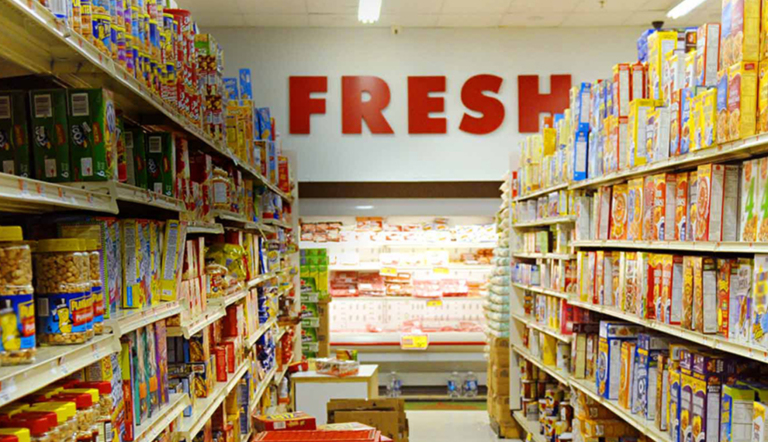The financial performance of Nigeria’s Fast Moving Consumer Goods (FMCG) companies in the initial nine months of 2023 paints a grim picture, setting the stage for an expected tumultuous year and beyond.
As we await the release of the Q4/2023 full-year results, the situation appears even bleaker, with the remnants of the drivers behind the challenging nine-month performance still looming large.
The unification of the exchange rate into a single window on June 14, 2023, had a profound effect on Nigeria’s foreign exchange market, leading to a significant surge from an official rate of about N462/$ in 2022 to N765/$ as of June 2023.
This, coupled with a subsequent 20% increase in the exchange rate from June to September and a further climb to N899.39/$ by December 29, 2023, created a perfect storm for major consumer goods companies in the country.
A cursory review of the financial statements of leading FMCG companies reveals a troubling trend in the first nine months of 2023, with several reporting losses before tax, primarily driven by foreign exchange losses and high finance costs.
Seven leading FMCG companies collectively reported foreign exchange losses of about N398 billion, resulting in a cumulative pre-tax loss of N229.906 billion.
Nigerian Breweries led the group with a pre-tax loss of N78.163 billion, followed by Nestle (N56.657 billion), International Breweries (N43.518 billion), Dangote Sugar (N41.325 billion), Cadbury (N10.243 billion), among others.
On net foreign exchange losses, Nestle Nigeria Plc, led the chart. The company had to reevaluate its foreign currency obligations, resulting in a substantial exchange loss of N127.45 billion in 9M 2023. The FX loss accounted for about 81.43% of the finance cost and played a significant role in the pre-tax loss of about N57 billion during that period.
Following Nestle’s experience, Nigerian Breweries also reported substantial foreign exchange losses of about N87 billion. In Q2 alone, Nigerian Breweries incurred a foreign exchange loss of N70.62 billion, contributing to the growth in finance costs and significantly influencing the N78.16 billion pre-tax loss in 9M.
In the food product subsector, Dangote Sugar Refinery reported N91 billion in foreign exchange losses, marking a substantial year-on-year growth of about 535%.
The company stated in its notes to the Q3 financial report that the Group had to revalue its monetary assets and liabilities for its Nigerian operation, based on the prevailing market rate of N776.79 as of September 30, 2023.
This resulted in a considerable revaluation loss of N72.88 billion, contributing to the Group’s N90.998 billion FX losses.
Amidst these challenges, BUA Foods, Unilever, and Nascon demonstrated resilience, reporting pre-tax profits. BUA Foods led the group with a pre-tax profit of N114 billion, reflecting the highest in the sector/subsector.
NASCON recorded N26.308 billion in pre-tax profit, while Unilever reported a pre-tax profit of N4.908 billion.
Looking ahead to the release of the Q4/2023 full-year results, there is an anticipation that the ongoing trend may continue and potentially exacerbate.
The 18% increase in the exchange rate in the last quarter of 2023, coupled with rising interest expenses due to high-interest rates and elevated borrowing, sets the stage for further challenges.
Given the surge in headline inflation, it seems unlikely that the Central Bank of Nigeria (CBN) will opt for an interest rate cut when it convenes its MPC meeting on February 26 and 27, 2024.
Thus, as these challenges persist, they raise concerns about potential spillover effects into other sectors, particularly the banking industry.
As these companies face these challenges, they may find it difficult to repay their loans, consequently contributing to an increase in loan impairments and non-performing loans of banks.
The concern about corporate debt default is already evident.
According to S&P Global Ratings, the number of companies globally unable to meet their debt obligations reached 153 in 2023, marking a significant increase from the previous year’s figure of 85, representing an 80% rise. The rating company believes that a similar issue could persist in 2024.
The implications of this trend extending beyond individual sectors highlight potential systemic risks that warrant careful monitoring and proactive risk management measures.
The FMCG companies will have to reimagine their operational strategies for enhanced cost efficiency in 2024. Collaboration between FMCGs is not just beneficial; it’s essential to capitalize on economies of scale, facilitate product portfolio diversification, and unlock revenue and cost synergies.
These strategic approaches are necessary to bolster investor confidence, especially considering that the stocks are currently trading at negative earnings multiples and negative earning yields
This will also help increase earnings and prevent further depletion of shareholders’ funds and thus reduce financial leverage.
The average equity multiplier of these companies is about 3.5. This indicates that, on average, the sector’s companies have total assets that are 3.5 times their total equity, suggesting a higher degree of financial leverage and reliance on debt in the capital structure.

